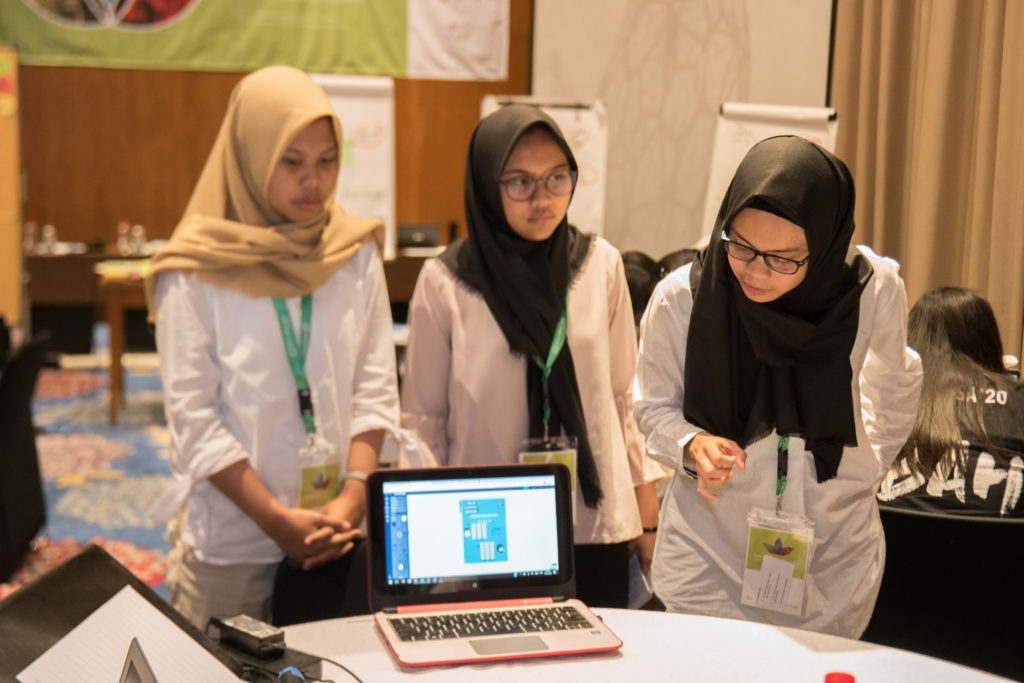
Almost a year ago, we wrote that in order to for women (and girls) in Indonesia to become digitally-empowered, there is a need to move beyond simply providing women with affordable access to ICTs. Instead, stakeholders must invest in activities to build the technical skills necessary to use digital tools for self-expression, mass mobilisation, and economic empowerment.
We hypothesized that building digital skills, more particularly digital data skills, early on is critical — especially in a context where digital education has been removed as a school subject and supposedly mainstreamed in general curriculum subjects such as math and science.
In conducting a survey among potential participants for an experiment we called “Starting Them Young,” we found that there is very little awareness, knowledge, and skills on data and digital literacy among high school students, even those from affluent private schools in Central Jakarta.
Using these findings as a basis, we crafted an experiment to determine how to increase data literacy among young women in Indonesia. We implemented the experiment in seven schools in Bandung and Jakarta, together with our partners, the Goethe Institut Indonesian and the PASCHE Network. The experiment proved that a carefully designed data literacy programs can significantly improve both young girls’ appreciation of data and their ability to create meaningful content, as evidenced by the posters created by students following the training.
The experiment yielded three important lessons:
Firstly, while one-off trainings are good for increasing awareness, knowledge, and skills, post-training support is critical to ensure that the girls are able to continuously apply and improve upon what they learned.
Future projects should be designed with the provision of post-training support in mind. This could include regular check-ins, follow-up training, additional projects, and creating a community of practice among the girls and their peers. This additional follow-up could help the girls more effectively promote and support digital literacy with other students in their own schools.
Schools could also play a more active role in building data and digital literacy among girls. The lack of support from schools, the absence of knowledgeable and skilled IT teachers, and the lack of equipment hinders girls from developing their interest and skills in the field. Without more support from schools, it is likely the girls will forget the knowledge and skills they learned during the project.
In the design of future projects, it would be constructive to more actively consider how schools can better support girls to develop these data skills.
Finally, a strong education policy is critical to ensure that girls can build the digital skills they need to meet the demands and challenges of an information society. Ensuring the sustainability of digital education for girls and boys demands reforms to the country’s education policy. While the Ministry of Information and Communication Technology recognises digital literacy as a core pillar in Indonesia’s ambition to be a digital nation — and researchers have pointed out the need for changes — the reforms required have yet to take place. And while the government agencies we interacted with in this program appreciate civil society organisations’ efforts to meet digital literacy goals, various stakeholders understand this is not a task CSOs can do on their own. The job demands collaboration across stakeholders that support digital literacy.
Read the report to explore the findings and recommendations in full.
Leave a Reply